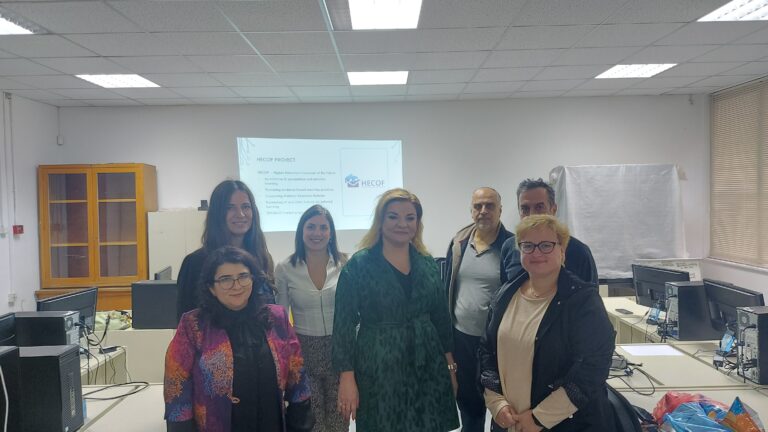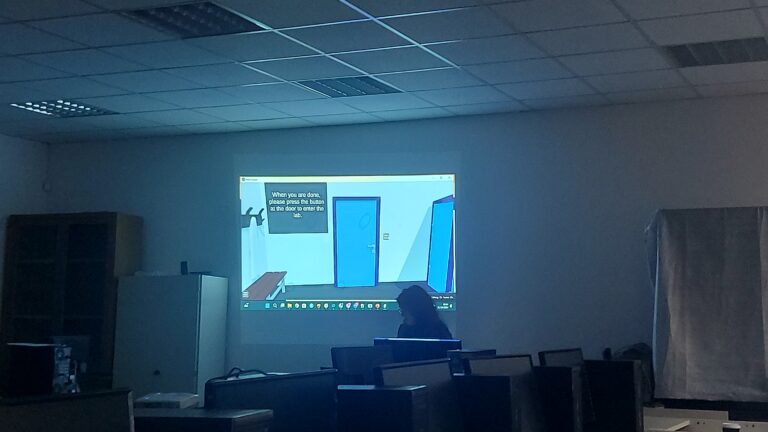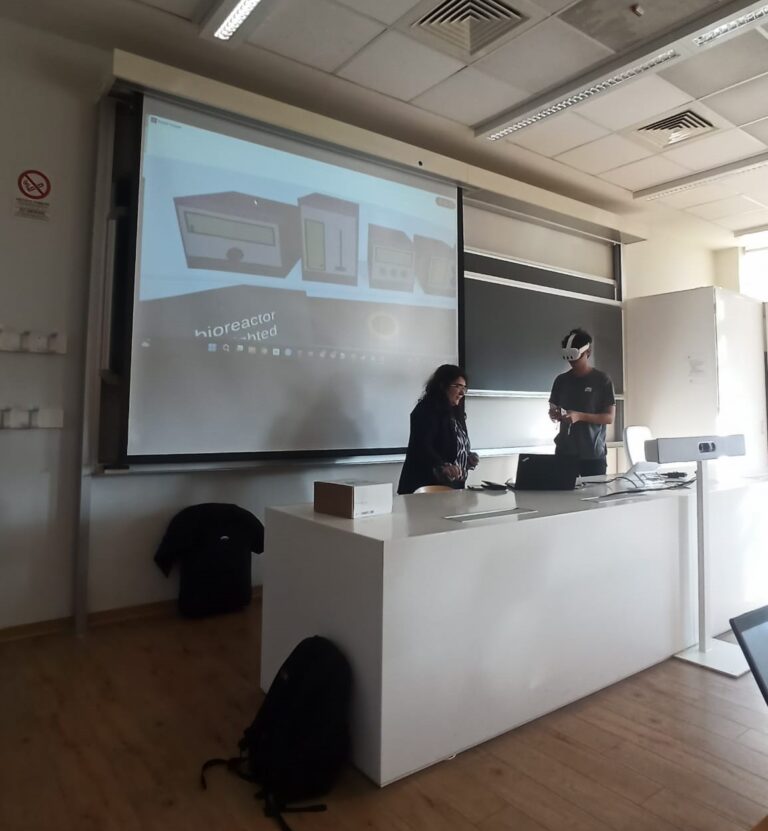In an exciting step forward for the HECOF Project, we recently conducted in-depth training sessions at two of Europe’s premier institutions: Politecnico di Milano and the National Technical University of Athens (NTUA) School of Chemical Engineering. Over the course of this week, students, educators, and industry experts came together to explore the latest innovations in AI-driven learning, adaptive technology, and immersive VR content that are reshaping the higher education landscape.
A Dynamic Start in Milan
Our journey began at Politecnico di Milano with an immersive, in-person training session that introduced the HECOF system’s unique capabilities. The system’s integration with Adaptemy AI—a powerful adaptive learning engine—allowed participants to experience the cutting-edge learner modeling, personalized recommendations, and Generative AI capabilities at the heart of HECOF. Supported by VR content powered by Nuromedia GmbH, the training provided a unique opportunity for students and educators to explore AI-driven pathways and delve into data analytics tailored to support personalized, impactful learning.
The enthusiasm from participants in Milan was palpable. Teachers were intrigued by the potential of AI to enhance content creation and develop strategies tailored to the needs of individual students. Meanwhile, students were captivated by the ability of adaptive learning tools to adjust to their unique learning paths and simplify complex concepts in chemical engineering and beyond. Engaging in these dialogues revealed a common excitement about the role of AI and VR in fostering an enriched learning environment.
Building on Success in Athens
Our next stop was the NTUA School of Chemical Engineering in Athens, where the momentum continued with an equally enthusiastic group of participants. Here, students and educators dove deep into the AI-powered tools of the HECOF system and experienced firsthand how VR can create immersive learning environments for mastering advanced scientific concepts. The session was animated by insightful questions, underscoring the high level of engagement and sparking vibrant discussions around AI, adaptive learning, and the potential of VR in education.
Educators at NTUA were particularly keen on understanding how AI could be leveraged to provide personalized teaching strategies and assist with content development. Students, on the other hand, showed a keen interest in how AI could support their learning journeys by adapting to their strengths and areas needing improvement, effectively helping them to master complex concepts. The questions and discussions that followed each presentation demonstrated a strong desire to explore the endless possibilities of AI and VR in revolutionizing the classroom.
Key Takeaways: AI and VR in Modern Education
As we wrap up these initial sessions of the HECOF Project Pilot Phase, a few key themes have emerged. Teachers and educators are increasingly interested in the role of AI in facilitating content creation and in building strategies tailored to the needs of each student. Students, for their part, are discovering the power of adaptive learning to help them navigate complex subjects with greater ease and confidence.
By integrating cutting-edge AI and VR technologies into HECOF, we’re creating a learning ecosystem where education is tailored to the individual, breaking away from the traditional, one-size-fits-all approach. This personalized learning experience, combined with immersive VR content, offers an effective pathway for mastering intricate topics, making learning more engaging and impactful.

Acknowledgments and Gratitude
The success of these transformative training sessions was made possible by the welcoming environment and dedicated efforts of our hosts at Politecnico di Milano and the NTUA School of Chemical Engineering. Their hospitality and commitment to advancing education played a significant role in shaping this initiative.
Our project partners—SIMAVI Software Imagination & Vision, Konnektable Technologies Ltd., and Nuromedia GmbH—have been instrumental in turning this vision into reality through their continued support and collaboration.
The Adaptemy team’s adaptive learning engine has also been a key component in HECOF’s mission to redefine higher education, providing innovative tools that have driven meaningful change throughout the project.
Looking Ahead: Shaping the Classroom of Tomorrow
With the success of our initial sessions, we are inspired by the shared commitment to innovation and the positive impact of AI-driven adaptive learning and VR in higher education. The HECOF Project is gaining momentum, and with each training, we edge closer to a future where learning is more personalized, accessible, and effective than ever before. This is only the beginning, and we look forward to expanding our pilot phase and building on these successes to shape the classroom of tomorrow.


